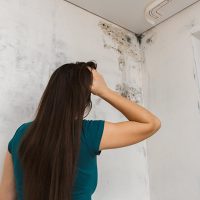Will My Insurance Policy Cover Mold Remediation?

After a tropical storm or hurricane, you may find that your troubles have only just started. The insurance company may claim that you do not have coverage for water damage, and that they are not responsible for helping with mold remediation. These arguments from insurance companies are not rare. They are more interested in their own profits than they are about helping you get your life back to normal. Below, our Daytona Beach mold claims lawyer outlines what you need to know, and tips for obtaining the full coverage you need.
Do Insurers Cover Mold Remediation?
There are many reasons insurers deny these claims. For example, when mold is a result of defective workmanship, it is likely not covered in a homeowners insurance policy. If a bathroom cabinet started developing mold due to a leak you did not notice for months, that will also likely be denied coverage from the insurer.
Whether water damage on its own is covered will highly depend on the terms of your insurance policy. If the mold is related to a water damage claim the insurer has already approved, there is a good chance that they will also cover some of the mold remediation expenses. Or, if there was a fire in your home and firefighters used hoses to put it out, you may submit a fire damage claim. If the insurer approves that claim, they will also likely cover at least a portion of a claim for mold.
Many insurance policies in Florida limit claims for mold damage between $1,000 and $10,000. However, mold remediation can cost anywhere between $15,000 and $30,000, meaning that certain homeowners may still end up paying a significant amount for mold damage.
What to Do After Discovering Mold
Unlike other types of damage to a home, mold is especially dangerous, particularly for people who suffer from allergies or asthma. You should repair it as soon as possible, but there are certain steps you should take before remediation is done. These are as follows:
- Find the source of water leakage so you can stop any further growth of mold.
- Take pictures and video footage of the water and mold damage.
- Contact your insurance company as soon as possible so the claims process can get started quickly.
- Try to dry the area out by opening windows, using a dehumidifier, or using fans to remove moisture.
- Do not attempt to remove or clean the mold on your own. An insurance adjuster may need to inspect the damage first to determine if they will approve your claim.
- Review your insurance policy to determine if mold damage is covered.
Always make sure you understand the limits of your policy, as that will be very helpful when obtaining quotes from mold remediation professionals.
Our Mold Claims Lawyer in Daytona Beach Can Help After a Denial
Denials of mold claims are often included with a denial of another claim, which is why you should always speak with a Daytona Beach mold claims lawyer. At Bundza & Rodriguez, our Daytona Beach mold claims lawyer can challenge the insurance company’s decision so you obtain the full coverage you need. Call us now at 386-252-5170 or contact us online to schedule a consultation.
Source:
floridahealth.gov/environmental-health/mold/index.html

